How to prepare for long term travel – 8 practical tips

Back in 2020 my boyfriend and I embarked on a year-long trip around Europe, Central America and South America. Getting everything ready for the trip took several months and I came to realize how much preparation long term travel requires.
Whether we’re talking about a sabbatical, a gap year or a career break, there are so many things to arrange and all the planning can feel overwhelming.
Of course, instead of being prepared you could also just wing it and figure everything out while you’re on the road but there are certain practical things I’d recommend taking care of before setting off. Doing some research and preparation beforehand can save you a lot of stress while traveling and safeguard you against unforeseeable events.
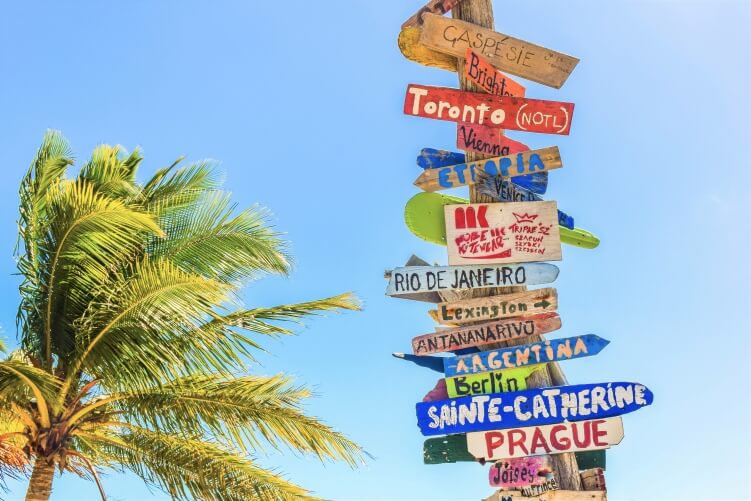
Assuming that you’ve already booked your flight, created a budget and a high-level itinerary, what’s left to do is to handle a bunch of not so exciting but highly important travel admin tasks which I’m going to take you through in this post.
Disclosure: This article contains affiliate links from which I may make a commission at no additional cost to you if you make a purchase.
How to prepare for long term travel – 8 practical tips
1. Prepare to move out of your apartment or house
Let’s start with the obvious one. If you’re renting a place, cancel your rental agreement or, in case you’d like to return there after your trip, investigate whether subletting is an option. The advantage of the latter is that you could sublet the place furnished and skip the hassle of getting rid of all your furniture. The same applies if you own the apartment or house you’re currently living in – rent it out furnished to avoid having to move the furniture.
If money is not your concern, you could also just keep your place without renting it out and let it wait for you until you’re back. Bear in mind though, that in some countries (including Denmark where I currently live) this would be illegal, and you’re obliged by law to rent out your apartment.
Assuming you choose to move out of your place, the next step is to figure out what to do with your belongings. Even if you don’t need to worry about selling the furniture, you’re still likely to own a bunch of things that need to be removed from the apartment.
Donate or sell the stuff you don’t need. Clean up your closet and get rid of the clothes that you haven’t worn in the past year. Selling used clothes one by one is likely to be a tedious task with only marginal benefit so the easier option is to just give them to organizations like Red Cross.
What else do you own that you’re not going to need for long term travel and are willing to sell? Books? Sports equipment? Home appliances? Maybe even a car? Every country has an online marketplace equivalent to eBay or Craigslist where you can buy and sell almost anything. Alternatively, use Facebook Marketplace as it’s a platform that everyone’s familiar with.
Once you’ve got rid of the unnecessary clutter, put the remaining stuff in storage. This could be in a rented storage unit, your friend’s or parents’ place, or your own basement (in case you own the place you’re going to rent out).

2. Buy long term travel insurance
Whether you’re preparing for long term travel or a short holiday, travel insurance is something that you need to have. Not only does it cover travel delays, lost luggage, trip interruptions and evacuations but also costs relating to unexpected illnesses and injuries when you’re on the road.
I’ve spent time in a Singaporean hospital attached to an IV machine. I know a friend who caught dengue fever in Vietnam and needed a week of hospital treatment, a friend who was hospitalized after a scooter accident in Thailand, and a friend who was airlifted from Bali to Singapore to get rabies treatment.
This is not to scare you away from travelling. Accidents and unfortunate events can happen anywhere but having proper travel insurance will give you peace of mind and protect you from financial loss in case something goes wrong.
After doing a ton of research and comparing different insurance providers, we decided to go with SafetyWing for our year-long trip. Their insurance is specifically designed for digital nomads and long term travel, so it was exactly what we were looking for. On top of that, the reviews I found online were overwhelmingly positive and the price that they offer is lower than other long term travel insurances out there. For these reasons, choosing SafetyWing was a complete no-brainer for us!
3. Pack the right things
When it comes to packing, besides the obvious stuff like clothes and personal hygiene products, there are some things that can make your long term trip better, safer, and more eco-friendly:
- Grayl Geopress – I’ve talked about this product before and will do it again. If you’re travelling to countries where drinking tap water is likely to give you stomach problems, get yourself a water purifier bottle from Grayl. Not only can you use it to purify tap water, but you can also fill it with water from a stream or a river and filter out chemicals, viruses, bacteria, microplastics and heavy metals within a few seconds. Think of the amount of plastic waste you can avoid creating if you stop buying bottled water and switch to using a purifier like the Grayl Geopress.
- Microfiber towel – Microfiber towels are ideal for travelling. They are much lighter, dry faster and take up way less space than a regular towel. I use a towel by Nomadix which is antimicrobial, super lightweight and made of recycled post-consumer plastic bottles.
- Money belt or bra stash – Depending on where you’re going to travel, getting robbed or pickpocketed might be a serious risk. To keep your documents and money safe, you might want to consider getting a money belt, a bra wallet or any other small hidden bag to wear underneath your clothes. I have a bra stash by EagleCreek and Fernando uses a belt clip pouch by Go Travel.
- Compression packing cubes – I was initially skeptical about buying packing cubes since they just seemed like extra items taking up space in my luggage. This is not the case at all, at least not for compression cubes. Having your clothes organized in separate cubes makes it so much easier to find what you’re looking for and by compressing the cubes, your clothes will literally take up half the space than they would without them. My packing cubes are from Gonex and they work like magic.
To learn how to further maximize space in your suitcase while still keeping your belongings organized, check out these 10 packing hacks for travelers. - Travel spork – Stop consuming single-use plastic cutlery and bring your spork wherever you go. For those unfamiliar with the term, a spork is a hybrid between a spoon and a fork. Whether you’re visiting street food markets, having a picnic in a park, grabbing a snack from a supermarket or preparing a meal at a campsite, a spork comes in handy in many situations. I’m using a spork made of natural fiber composite by Kupilka.
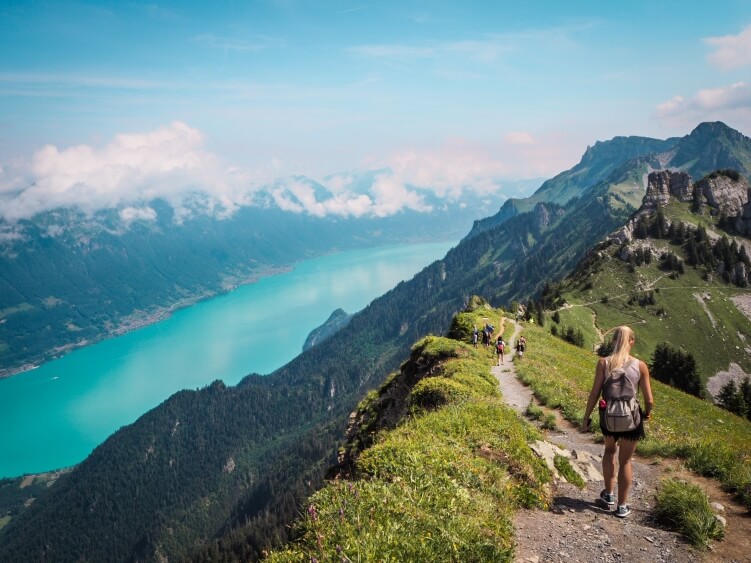
4. Get your travel vaccinations
The type of vaccinations you need to get depends largely on which countries you plan to include in your long term travel plans. There are lots of sites online where you can find the recommended travel vaccinations for each country taking into account the length of your stay and the activities you plan to engage in.
Based on what I’ve seen online, when considering a specific travel destination, American sites seem to recommend getting about twice as many vaccinations than what’s recommended on Danish sites. This just reflects the fact that there is no one correct answer since the health policies and risk assessments differ across countries.
Also, vaccination clinics probably have the incentive to sell you as many vaccines as possible, so I’d personally take their advice with a grain of salt and make a decision based on a combination of their recommendations and my own research. At the end of the day, which vaccinations you should get comes down to how much risk you’re willing to tolerate in terms of potentially contracting a disease while travelling.
As some vaccinations consist of several shots that need to be taken weeks or months apart, start the process early.
During my one year of travelling, I’m planning to spend time in Central America, South America and Asia, and therefore got the following vaccinations: tetanus-diphtheria, yellow fever, hepatitis A and typhoid.
Disclaimer: I’m not a doctor and all of the above is just my personal opinion, not professional medical advice. Consult your physician to be on the safe side.

5. Stock up on medication
If you’re taking any medication, remember to stock up and bring the amount that you’ll need for your trip. Sure, there are pharmacies everywhere and you might find products similar to what you’re used to taking at home, but with certain drugs, most of us would prefer to use the brands that we’ve tried and tested and know that they work for us. These could be birth control pills, allergy medication, food intolerance medication or any other prescription drugs you’re used to taking.
P.S. For some medicines, you might need to have a statement from your doctor to be allowed to bring them to a foreign country, especially if we’re talking about large quantities.
On top of that, think about other medication that could come in handy while you’re travelling. It would be a good idea to at least bring painkillers, antiseptic spray (for wounds), electrolyte tablets (in case of dehydration), anti-diarrhea pills and malaria pills if you’re travelling to an affected area. Once again, you’re likely to find all these drugs locally when you’re abroad, but do you really want to run around the town to find a pharmacy when you’re hit by traveler’s diarrhea? Probably not.
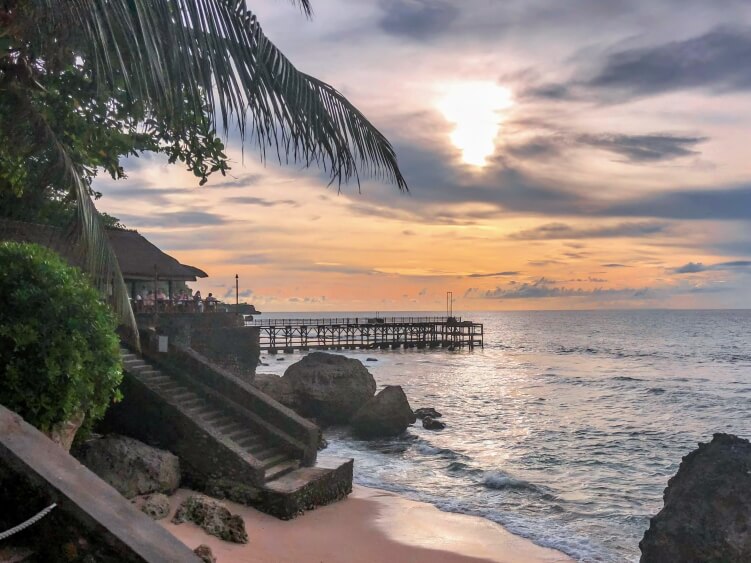
6. Check your passport & visa requirements
Make sure your passport is valid not only throughout your trip but also 6 months after since that’s a requirement for entering many countries.
As it can take several weeks or even months to renew your passport, check its validity well in advance of your departure. Believe me, you don’t want to find yourself in a situation where you realize shortly before your trip that your passport won’t be valid for long enough. I’ve been there, done that and panicked the hell out of myself before travelling to Bali. (Luckily, paying for expedited processing saved my a**!)
Note down the countries you plan to visit and find out if you need a visa for any of them. In some places, you can just make the visa on arrival whereas in others you’re required to have a visa arranged through an embassy in advance. Also, make sure that your passport has enough blank pages for stamps and visas.
Remember to make copies of your passport and other important documents like driver’s licence, credit cards, vaccination card and health insurance information. Store the copies in a cloud and also bring printed copies with you. This way, in case your documents get stolen or you lose them, it will be much easier to replace them and it will save you a massive headache.

7. Plan the beginning of your trip
You probably have a rough idea about which countries you would like to include in your long term travel itinerary. Clearly, there’s no need to have all flights and accommodations booked until the end of your sabbatical or gap year because you’ll want to have some flexibility. However, it would be wise to do some planning at least for the first few destinations that you’re heading to.
Consider the seasons in the countries you’re going to visit and whether you plan to engage in activities that require special clothing. Perhaps you’ll need a warm coat and a hat? Or a rain jacket? Hiking boots?
In order to enter certain countries, you need to show proof of onward travel at the check-in counter at the airport. If you don’t have it, you won’t be allowed to board the flight. That would be a real bummer, huh? Thankfully, many airlines offer tickets that are 100% refundable. If you don’t want to decide in advance when or how you will leave your destination country, buy one of these tickets, cancel it after arriving and get a full refund.
Alternatively, you could buy a cheap bus or train ticket out of the country and have this as your proof of onward travel. As this method might not work everywhere, do some research on your destination country beforehand to be sure.
Also, it’s worth checking if your stay coincides with any major events (festivals, conferences, sporting events), important national holidays, spring break etc. If that’s the case, the prices are likely to be higher during those periods and accommodations might get sold out, so you shouldn’t leave your bookings to the last minute. Have your accommodation booked at least for the first few nights so you wouldn’t have to start looking for a place while you’re massively jetlagged.

8. Get a credit card and a travel card
I highly recommend getting a prepaid travel card, such as Revolut, for your trip. Once you’ve opened an account through the Revolut app (which takes just a few minutes), the way it works is that you simply top up your Revolut card via the app and get excellent exchange rates when paying with it. You can also withdraw local currencies up to 200 GBP (or local equivalent) per month without any fees (thereafter the fee will be 2%).
Another great feature of Revolut is that you can instantly freeze your card through the Revolut app in case the card gets stolen or you’ve misplaced it. Since you’ve frozen the card, whoever gets their hands on it won’t be able to spend a single penny. Also, if you manage to get your card back or find it in the bottom of your bag, you can simply unfreeze it in the app.
There are several other cool features besides the ones I mentioned, which all together make Revolut one of the best cards (if not THE best) for travelling.
You should also get a credit card so you would have access to your money in case you lose your travel card. On top of that, in most countries, you’re required to have a credit card (not debit!) to be able to rent a car.
Remember to inform your bank of your long term travel plans before your departure. Otherwise, they might block your card when they notice that it’s being used abroad. This happened to me in Brazil when I suddenly discovered that I had lost all access to my money.
If you already have a credit card, make sure to check if it’s valid throughout your trip.
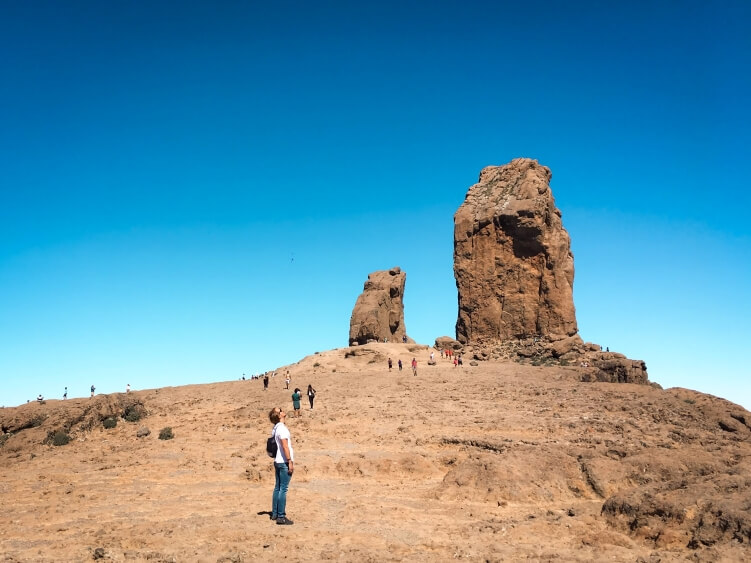
Preparation for long term travel can seem overwhelming but if you complete all of these steps you’ll be ready to embark on the big journey with peace of mind. Even if you forget to take care of some of the practicalities, know that everything will work out one way or another once you’re on the road. So stop stressing, embrace the freedom and enjoy what will likely be the adventure of your lifetime!
READ MORE:

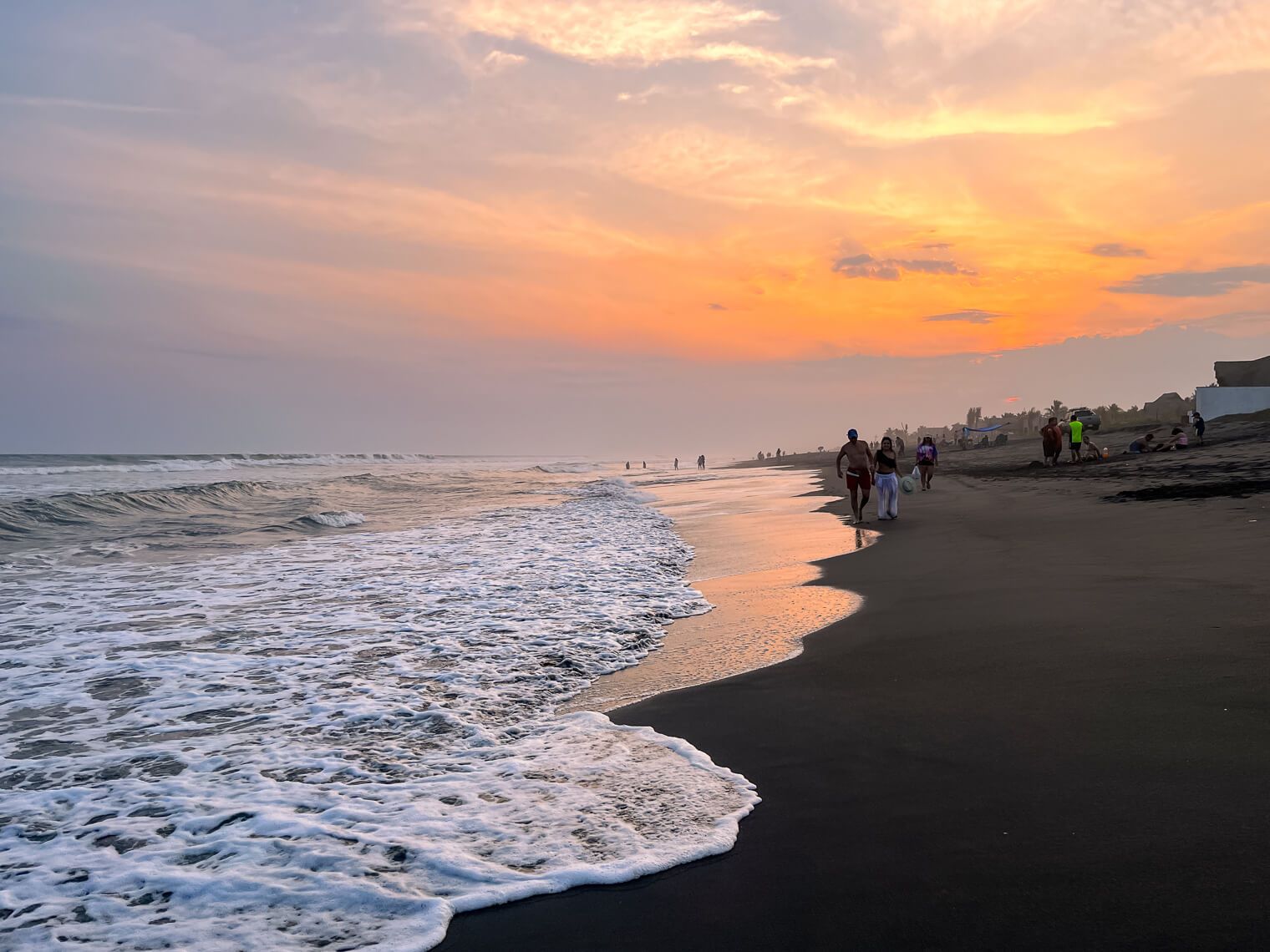





Super helpful! 🙂
I’m glad to hear that! 🙂
Great post! I’ve gone on multiple long-term trips, and this post hits all the major things I do to prepare. I wish I had this when I was planning my first long-term trip! It would have saved me a lot of time and list making.
Thank you Erica. It’s reassuring to hear that you as an experienced long-term traveler prepare the same way for a long trip! 🙂
Really great tips here. We’re preparing for long-term travel as a family and your list, reassuringly, matches mine!
Thanks Deborah! That’s so cool that you are going on a long-term trip with your family and showing that travelling doesn’t have to stop after having kids 🙂
This is super useful! I think the medicines are quite overlooked and get up forgotten fairly often, so it is great that you included them as well. Great post!
I’m glad you found it helpful Polly! That’s so true, many people tend to forget about medicines.
The one thing I always forget to do is notify my bank! LOL. Must set that as a reminder!
Hahaha yes, better safe than sorry! 🙂
Love these tips for long term travel. Preparing my house is one factor and appreciate that section in this article.
Love these tips! I wanna do that too but my boyfriend has a great job right now that he cant leave for long.. but its never too late, so maybe in a couple of years 🙂 Great post & I cant wait to read more from your blog 🙂
Thanks Tina! I totally agree that it’s never too late to do something like this! 🙂
it was a great information blog for traveling overseas.
I am now just worried about what to pack and bring on my trip.
your information is really good.
Thank you for sharing all the information with us.👍👍👍👍